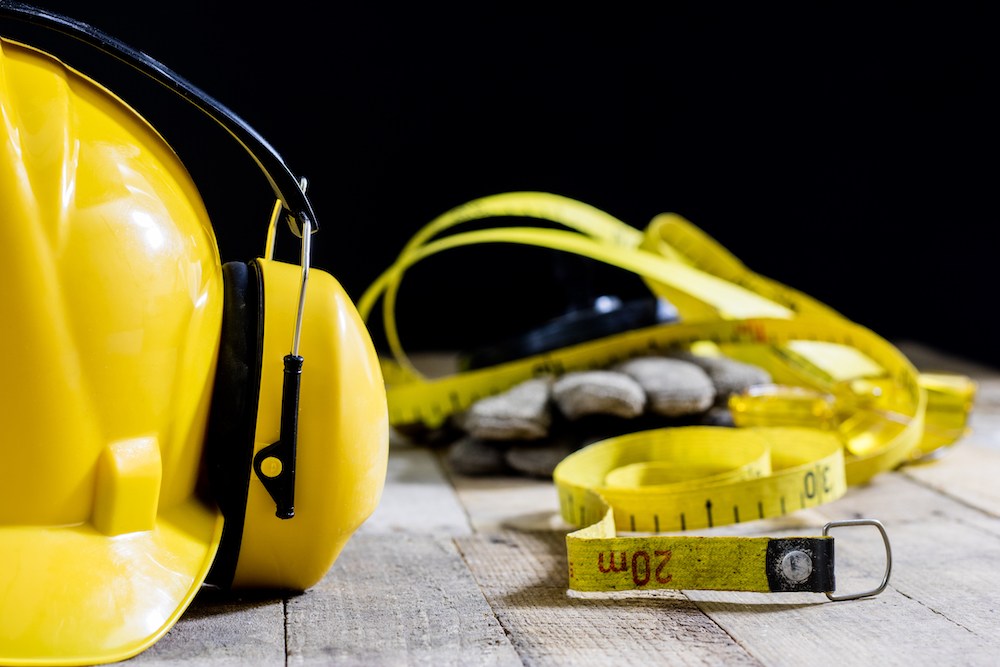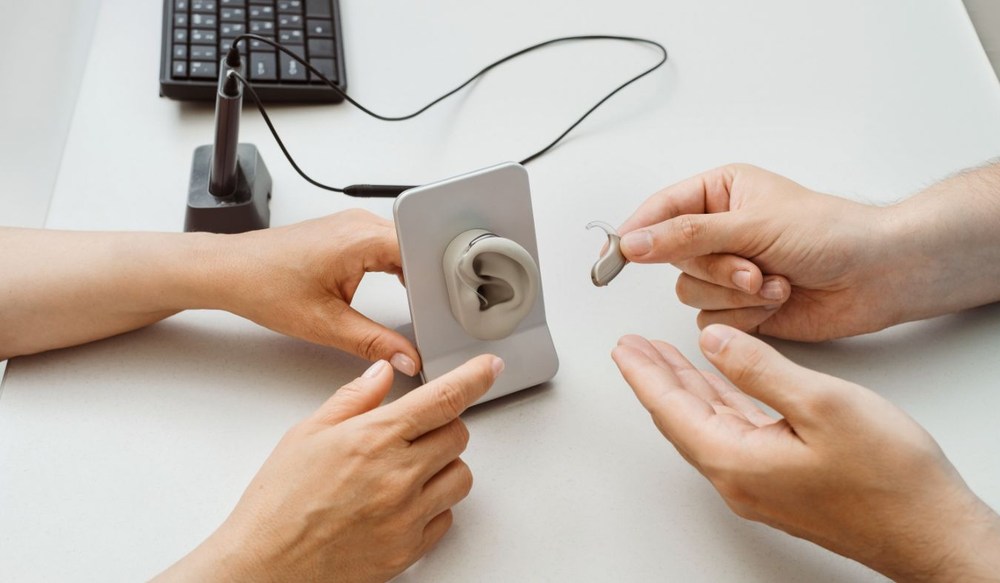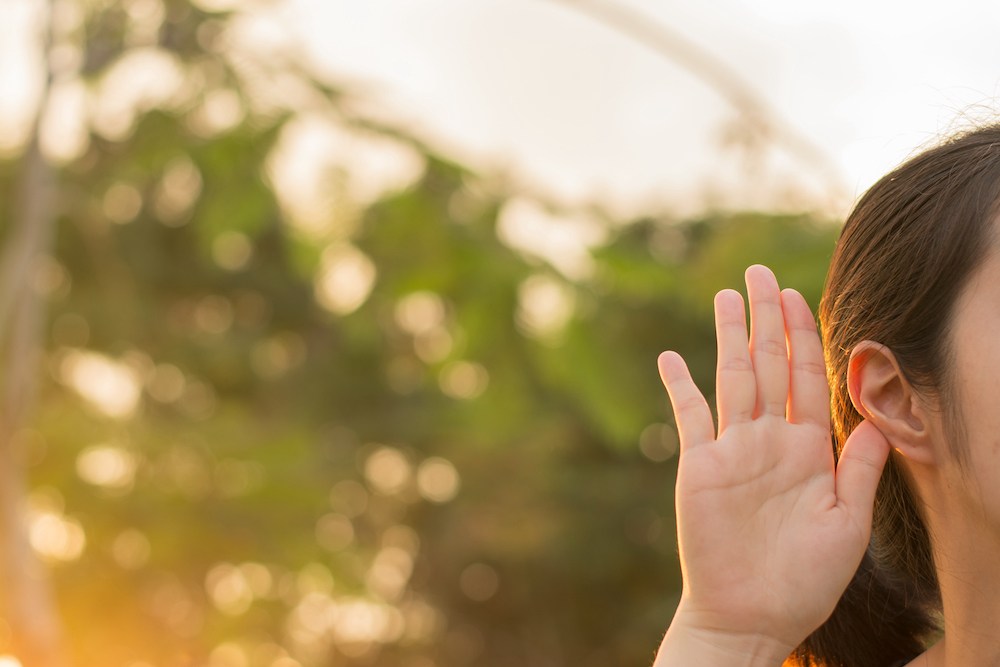The Impact of Hearing Aid Design on Wearer Comfort
Hearing aid design directly affects whether people actually use them. If a

By: admin | July 24, 2024
Summer concerts and festivals are a blast. The beat of your favorite band reverberating through the crowd is an experience like no other. But amidst all the fun, don’t forget about your hearing health. The loud music, the cheering crowds and even the noise from food stalls can expose you to sound levels that could harm your hearing. To keep your hearing in top shape, it’s vital to understand how to protect your ears, spot early signs of potential damage and practice safe listening habits.
The excitement of live music is a high point of the summer season. But these events often come with high decibel levels that could put your hearing health at risk. Prioritizing your hearing protection during these times is not just smart, it’s essential for your long-term auditory well-being.
Simple tools like earplugs and earmuffs can effectively reduce noise exposure at loud events. Taking regular breaks from the noise can also give your ears some much-needed rest. Good hearing health practices today can help prevent potential hearing loss in the future.
As the old adage goes, “all good things in moderation.” This is particularly true for exposure to loud music. While it’s fun to get lost in the beat of your favorite song, excessive noise can negatively affect your hearing health.
Continuous exposure to high-decibel sounds, like those at concerts or festivals, can lead to noise-induced hearing loss. This type of hearing loss can be temporary or permanent and may not be noticeable until it has significantly progressed. So, while you’re enjoying the concert, remember to take care of your ears too!
Changes in your hearing can be subtle and often sneak up on you. Common indicators include a persistent ringing or buzzing sound in your ears, known as tinnitus, after exposure to loud noise. You might also find that you’re asking people to repeat themselves more often or that you’re having trouble following conversations when there’s background noise.
If these symptoms sound familiar, it’s important to get your hearing checked by a professional. Early detection of hearing loss can lead to more effective treatment options and better outcomes for your overall hearing health. So, if you suspect something might be off with your hearing, don’t hesitate – schedule an appointment with a hearing specialist today!
Protecting your ears from harmful noise levels doesn’t have to be complicated. There are various types of ear protection available that can help keep your hearing health in check.
Earplugs are small, easy to carry and can significantly reduce the amount of noise entering your ears. They come in a variety of materials like foam, silicone or even custom-molded options for a perfect fit. However, they may not provide complete noise reduction if not fitted properly.
Earmuffs are designed to cover the entire outer ear. They provide a higher level of noise reduction compared to earplugs and are typically more durable. While they can be more comfortable for long-term use, their larger size might make them less convenient.
Electronic hearing protectors actively cancel out certain noises while allowing others through. These are particularly useful if you need to hear conversations or important sounds while still protecting against harmful noise levels. They offer advanced features and convenience but tend to be more expensive than other types.
Each type has its own pros and cons, so consider what works best for your specific needs and lifestyle when choosing ear protection.
Selecting the right ear protection for concerts and festivals can seem daunting with so many options available. However, here are some simple steps to help you make an informed decision:
With the right earplugs in your pocket, you’re ready to rock out responsibly. But how do you use these tiny tools correctly to ensure maximum protection for your ears?
Firstly, make sure your hands are clean before handling your earplugs to avoid any potential infection risks. Insert the earplug into your ear canal gently but firmly, ensuring a snug fit. If you’re using foam earplugs, squeeze them before insertion and allow them to expand in your ear. For silicone or custom-molded options, simply push them into place. A proper fit is key – an ill-fitted earplug can significantly reduce its effectiveness.
Secondly, take breaks and give your ears some rest during the event. Even with earplugs in, continuous exposure to loud sounds can still be harmful over time. Try to find a quieter spot away from speakers or sound systems during these breaks and remove your earplugs to let your ears breathe.
Using earplugs at music events isn’t just about reducing noise levels but also about promoting better hearing health practices overall.
Determining when loud is too loud at concerts and festivals is crucial for protecting your hearing. One of the simplest indicators is the level of discomfort you experience. If the sound causes pain, ringing in your ears or you need to shout to be heard by someone an arm’s length away, the volume is likely too high. Prolonged exposure to such loud environments can lead to temporary or even permanent hearing loss.
Another practical approach is to use a decibel meter, which can be found on many smartphone apps. Sound levels above 85 decibels can be harmful with prolonged exposure. Concerts and festivals often exceed this threshold, sometimes reaching levels over 100 decibels, which can cause hearing damage in just a few minutes.
You can also assess the situation by noting any signs of auditory fatigue. After leaving a loud event, if you experience muffled hearing or ringing in your ears, it indicates that the noise levels were damaging. This condition, known as temporary threshold shift, is a sign that your ears have been stressed by excessive noise and are struggling to recover.
Consider the duration of your exposure. The louder the sound, the shorter the safe exposure time. For instance, at 100 decibels, hearing damage can occur after just 15 minutes. Limiting your time in such environments, taking regular breaks and giving your ears time to rest can help mitigate the risks.
Attending a concert or festival is a thrilling experience, but it’s essential to cultivate safe listening habits to protect your hearing. Here are a few tips:
Just as athletes need rest periods to recover and perform optimally, your ears also require breaks to protect them from potential harm at loud events. Think of it like a marathon runner who takes short breaks for water and rest – it’s not about slowing down, but rather about ensuring they can go the distance without injury.
Similarly, taking regular breaks away from high-decibel environments allows your ears to rest and recover, reducing the risk of noise-induced hearing loss. Stepping away from the loud music or noise for a few minutes every hour is not only beneficial but also essential in preserving your hearing health during concerts, festivals or any other loud events.
Outdoor events, whether they’re concerts, festivals or sports games, can be a lot of fun. But amidst the cheers and music, it’s important to protect your hearing.
One way to reduce noise exposure is by standing at a safe distance from the source of the noise, like speakers or stages. Another tip is to use ear protection like earplugs or earmuffs which can significantly lower the level of noise your ears are exposed to. Protecting your hearing doesn’t mean you can’t enjoy the event – it just means enjoying it responsibly.
Have you ever left a concert and found that sounds seem muffled or distant? This could be a sign of temporary hearing loss, often brought on by exposure to high-decibel noise. The first thing to do is give your ears some rest. Avoid loud noises and try to stay in quiet environments for the next 24 hours. This can help your ears recover and may restore your hearing back to its normal level.
If after a day or two, you still notice changes in your hearing, it’s time to see a professional. Schedule an appointment with an audiologist who can assess your situation and guide you through the next steps. Early intervention is key in preventing further damage and maintaining good hearing health.
As the concert season unfolds, remember that protecting your hearing health doesn’t mean missing out on the fun. With the right protection and safe listening practices, you can fully enjoy live music while keeping your ears healthy. If you have any questions or concerns about protecting your hearing at concerts or festivals, we’re here to help.
At Great Lakes Bay Hearing, our team is here to guide you in making informed decisions about your hearing health. Whether it’s selecting the right ear protection for concerts or addressing potential signs of noise-induced hearing loss, we’re here to assist every step of the way.
To learn more about how we can help protect your ears during this summer concert season, contact our Midland, MI office at (989) 941-0627. Your enjoyment of live music shouldn’t come at a cost to your auditory well-being. Let us help ensure that every beat heard is a beat towards better hearing health.
Tags: hearing loss prevention tips, hearing protection services

Hearing aid design directly affects whether people actually use them. If a
By: admin | November 18, 2025

Many people expect hearing aids to provide clear hearing in every
By: admin | September 24, 2025

Hearing affects almost every interaction we have at work – from team
By: admin | May 23, 2025
